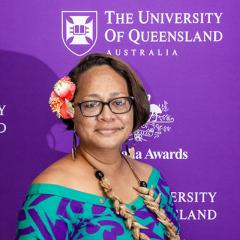The University of Queensland (UQ) has taken another step towards deepening collaboration with one of Europe’s leading universities, with Vice-Chancellor and President Professor Peter Høj signing an agreement to formalise a Joint Doctoral Supervision Program with the Technical University of Munich (TUM).
Whilst accessible to students across all discipline areas, the doctoral supervision program supports a focus on biotechnology and enables students to undertake at least one year of their research abroad.
The agreement was signed at an international symposium on harnessing future talent, which was held at TUM to help celebrate the University’s 150th anniversary.
TUM Straubing Campus Dean and Honorary UQ Professor Dr Volker Sieber said the agreement builds on long-lasting research cooperation between UQ and TUM throughout the past eight years, which, to date, has produced more than 90 joint research publications.
“TUM and UQ share a commitment to research excellence and translating outcomes to create positive economic, environmental and societal change,” Dr Sieber said.
“Our two institutions are home to leading researchers in chemical biotechnology; the agreement not only gives PhD students access to complementary facilities and resources, but also offers a global pathway that exposes students to different research approaches and to wider networking opportunities.”
Director of UQ Global Engagement and Entrepreneurship Dr Jessica Gallagher agreed that the Joint Doctoral Supervision Program would provide staff and students with new opportunities for international engagement.
“We are pleased to strengthen our already robust relationship with TUM, which has a proven international reputation in biotechnology and environmental sciences,” Dr Gallagher said.
“The UQ-TUM partnership was formalised in 2010 and has since become UQ’s most popular student exchange destination in Germany. To date, the collaboration has supported joint publications, staff mobility, student internships, laboratory placements, joint research projects, guest lectures, and a variety of workshops.”
Last year’s UQ-TUM Bioeconomy Symposium reflected global interest in achieving a sustainable bioeconomy and explored key measures and challenges identified by the OECD and European Commission as outlined in Germany's National Research Strategy 2030. Discussion focused on the production of healthy and safe foods, sustainable agricultural production, renewable resources and biomaterials for industry, biotechnology and bioprocesses engineering, along with the development of biomass-based energy centres.
Media: Senior International Strategist, Global Strategy and Partnerships, UQ Global Engagement and Entrepreneurship, Ms Sally Wilson: +61 7 3365 4746 or sally.wilson@uq.edu.au.



